The Secret Chateau in the Marais
The best unknown, opulent, and affordable place to stay in Paris and its royal history.
When we were still dating, my wife Alex and I traveled whenever we could. We were young, paid less rent, had fewer bills, had no dog, and footed most of our travel expenses by renting out our Nolita apartment on Airbnb. She’d never been to Paris and I never had a problem going, so we put a trip on the books. Oh, to be young and in love.
Having been Airbnb hosts for a while, we were pretty comfortable opting to stay in them as well. Hotel prices being what they were, we’d also be able to stretch our dollars a little further. We stumbled upon something that looked too luxurious, too affordable, but too good to pass up. We booked it and off we went.
French history, particularly of the Ancien Regime, is woven by noble bloodlines. These families dwelled in and around Paris, in stately chateaux, and at times in the same palace as the royal family. Many of their retreats still exist today as museums, fine hotels, or private residences. But we had no inkling that we’d just booked a suite of rooms (yes, a suite of rooms) in one such place.
The story of the mansion, Hotel de Croisilles, picks up after the crusades when a knight built a church upon his return to France. Croisilles, a small parish, grew up around. The land and its income set the family up for a long line of success, cresting the 17th century.
Clever Nicolas, Lord of Charsonville
In 1613, Nicolas de Croisilles struck a fantastic match with Anne de Tuffany, daughter of the king's secretary on one side, and granddaughter of one of his closest advisors on the other. These connections were all part of the marriage game — pair children off to better the family at large. And a bride with not one but two close ties to the king is a big fish. Plus, with no sons for his inheritance to pass to, her father’s lordship passed to Nicolas through marriage. He was now a lord twice over, already having Croisilles.
Nicolas would soon become entwined with the illustrious and near-mythical Montmorency clan — a family so powerful and close with the royals that they enjoyed near constant favoritism. There are two notable examples I found. The first was when he argued a case of succession on their behalf, resulting in François Montmorency, Lord of Charsonville, being confirmed as an abbot of Notre Dame after his uncle’s death.
The next favor starts with Diane de France, daughter of King Henry II. She married into the Montmorency family but was ultimately left rich, childless and widowed. Her favorite nephew, Charles Valois and his wife Charlotte seemed the obvious choice to inherit. But weary of his wild spending (this is France, people), she instead bequeathed her enormous fortune to his son, François, her great-nephew.
Part of the deal was that he was to provide his speedy parents with an annual income until their death. But, still cautious, Diane appointed Nicolas as conservator to safeguard the estate. After her death, young François “sold” his parents her jewelry, gems, gold and silver. The sales document has no price, which implies this was a gift that effectively thwarted her wishes. On the very same day the couple, now rich with Nicolas’ help, sold him the lordship of Fleurac. Suspicious!
In relatively short order, Nicolas had secured royal access and a lordship via his smart marriage, the favor of the exceedingly wealthy Montmorency family and purchased himself an additional title. Flush with these new incomes, he purchased land in Paris in 1619. It was conveniently close to the Place Royale and that tantalizing royal orbit (the modern-day Place des Vosges).
He set about building an impressive mansion and expanded it with meandering gardens on an additional plot. Before long, he was back in league with Montmorency. This time, he went back to François, Lord of Charsonville and purchased the lordship of Charsonville from him. Nicolas would continue purchasing even more titles and rights for himself, successfully working his way up to the royal chamber as an advisor to King Louis XIII and steward to the Duke d'Angouleme.
The point, for us, is that all this led to building the chateau. Nicolas died around 1640, leaving the stately Hotel de Croisilles to his wife.
Changing Hands, Changing Times
In 1647, his widow sold the house to Etienne Macquart, advisor and secretary to the king. It would remain in their family until 1776 when it was bought by parliament member Lambert Deschamps de Morel. There’s another record of sale in 1896 to the Real Estate Company of Parc Royal I found mentioned in a 1987 paper detailing a government restoration. (There were other sources saying it served as a jewelry firm and a home for girls before being bought by the city in 1938, but they were less substantiated.)
This 1987 project was spearheaded by the internationally-renowned Christiane Schmukle-Mollard, who at the time was Chief Architect for Historic Monuments of France. The work would transform the “mutilated” building into a “Library of Records of the French Historic Monuments and The Hall of the High Committee of Historic Monuments.”
It was a gut reno. “There were no internal elements in its structure or ornamentation worth being preserved, except its frames and its 18th-century stairway.” Looking at the schematics, there was a significant underground expansion and addition of a fantastic Tron-esque library, which stands in sharp contrast to the largely authentic work done elsewhere on the property. In 2007, it was sold and restored again to its current resplendent state. So who’s there now?
Expert Craftsmen with a Plan
I’m fairly obsessive when it comes to Airbnbs, partly because of my personality and partly because of the horror stories we’ve all heard. Being a seasoned host, I know what to look out for, but there’s still a little trepidation every time. Nevertheless, we excitedly pulled up to 12 du Parc Royal in the Marais and I was eager to play the handsome tour guide to Alex on her first visit to Paris.
We walked through the gates into an exquisitely manicured courtyard across from the park, climbed that 18th-century stairway—unaware of its history— and turned the key.
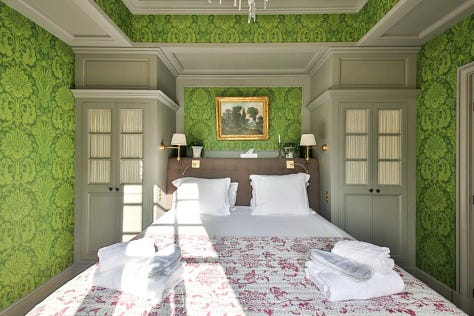
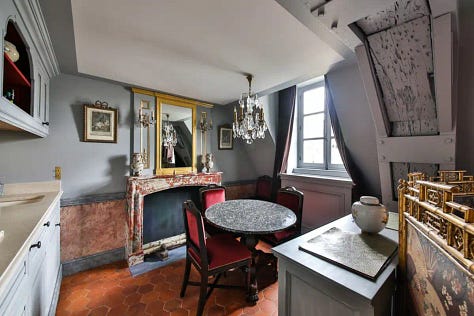

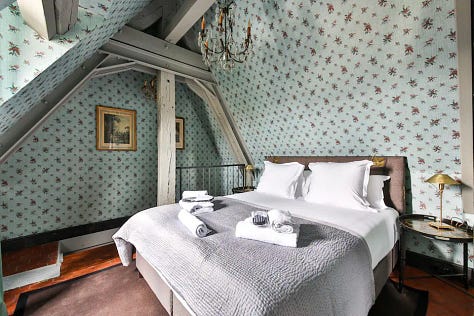
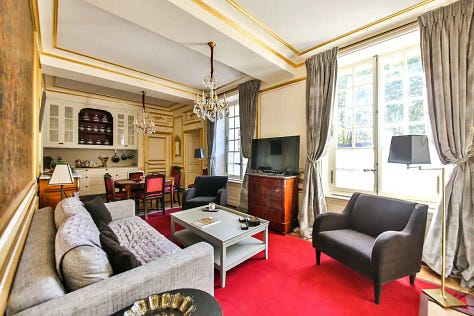
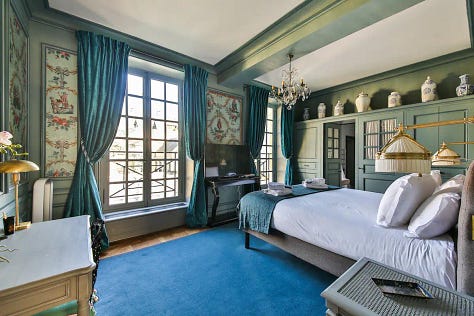

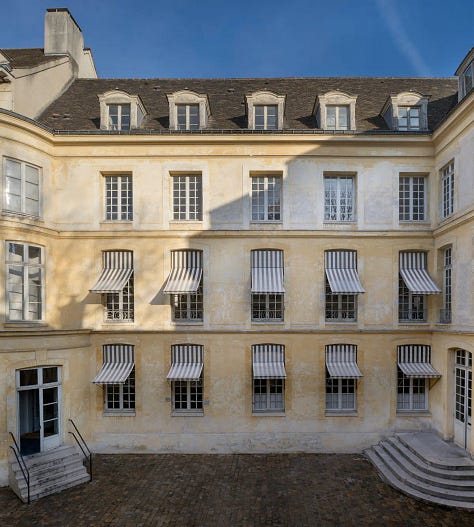
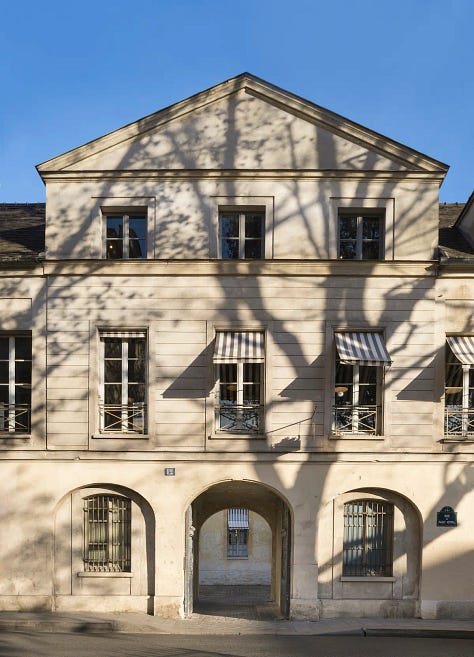
My god, it was…sumptuous! Opulent! Impossible! Like a time capsule, like they built Versailles for you. There was a living room and kitchen full of filigree, ornamentation, and chandeliers. The bedroom had two beautiful French windows overlooking the garden. The bathroom. I mean wow. The bathroom! An enormous tub fit for a queen, a separate room that was just a shower? But it was a room? And everywhere you looked you thought, “I am not this rich.” It oozed romance, begged for champagne (plenty of both were had) and was easily the most luxurious accommodation I’d ever seen. And it was ours!
So we made our ephemeral home in Paris, feeling much like the long-lost and well-moneyed Montmorency. We’d pass through the courtyard dizzy with happiness as we dashed off to wander around, occasionally peering into the curious office on the first floor. On the outer walls of the building, we noticed a small sign that read “Atelier Mériguet-Carrère.” I recognized the name from some books that were in our suite.
As it happens, this company is part of Ateliers de France, a network of craftsmen and guilds that are skilled in dying arts. What the couture dressmakers are for clothing, these people are for architecture and interiors. Mériguet-Carrère’s specialties date back to the 17th century. They own the chateau now. They did Obama’s Oval Office and Yves Saint Laurent’s apartment. The opera house! They did build us a Versailles because they restored the actual Versailles and the Petit Trianon.
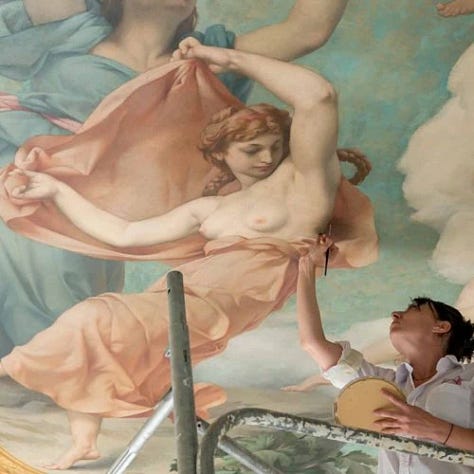
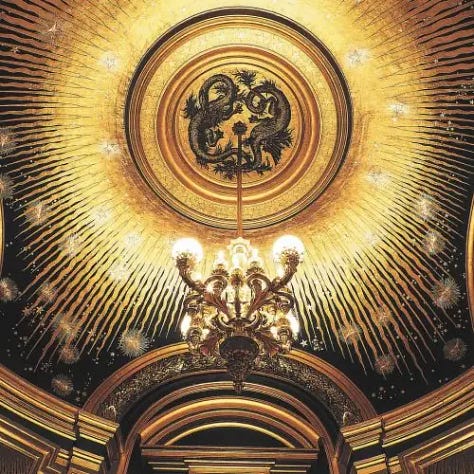
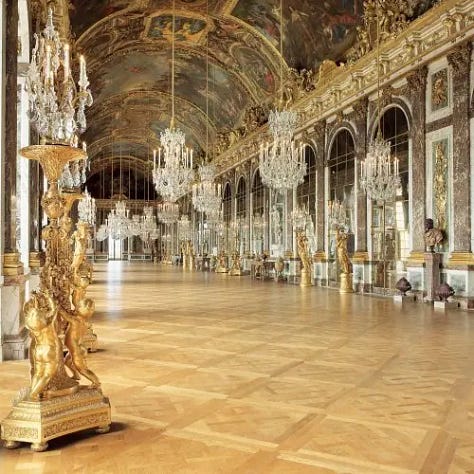
If they own the whole chateau, or at least part of it, turning the empty apartments and rooms into Airbnbs is a stroke of genius. There are ten (air-conditioned!) apartments, giving any traveler or family options. We went in the offseason (highly recommend) and were able to get a good price since the listing was new. Right now, prices in the chateau range from $200–$566 a night, plus whatever fees Airbnb will add. Compared to hotels, it seems an easy choice to me. It is heaven and history at once.
True history is everywhere over there, but to live in it like this feels exceedingly rare. And romantic. It is Paris, after all.








Wow! Many thanks for alerting me to this place.
magnifique! also have never heard the term 'best unknown' but love it